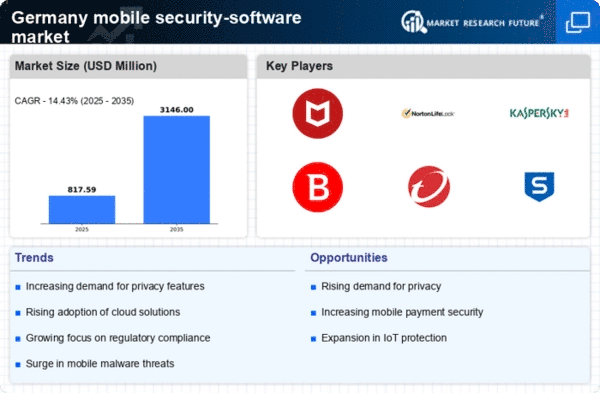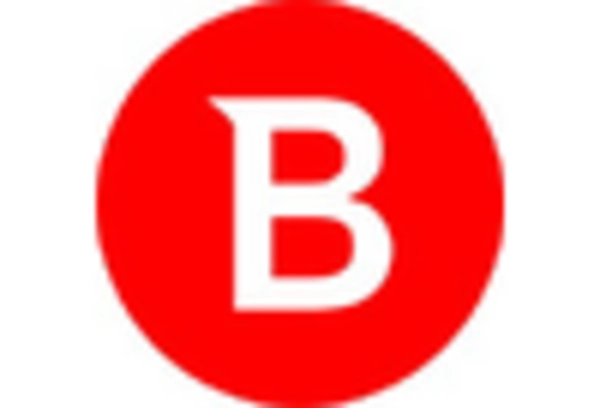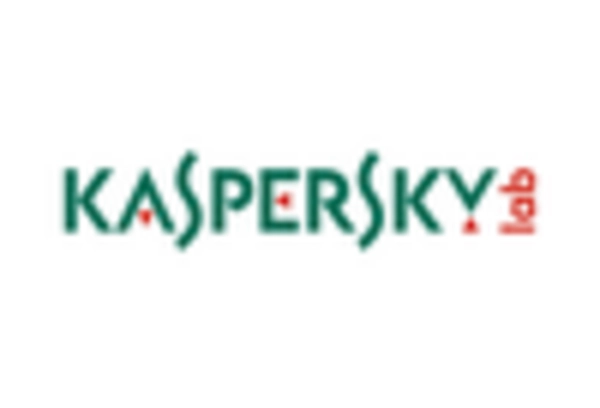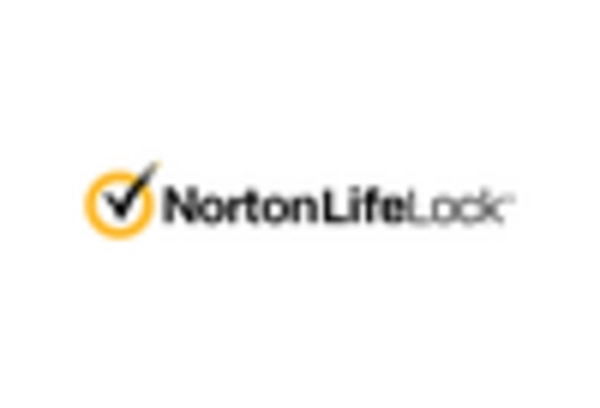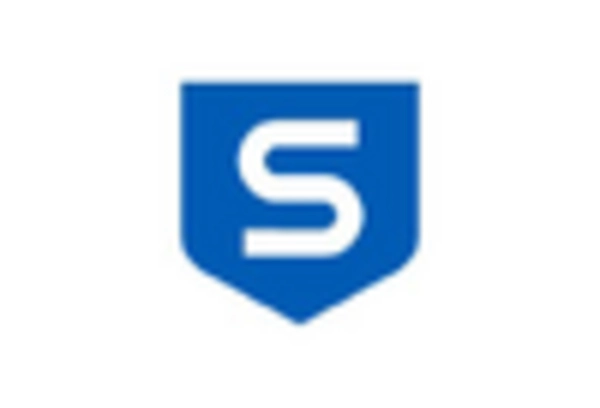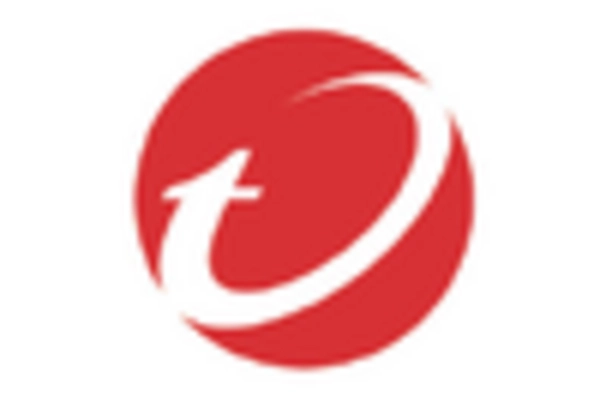Increasing Cyber Threats
The mobile security-software market in Germany is experiencing heightened demand due to the increasing frequency and sophistication of cyber threats. Reports indicate that cybercrime costs the German economy approximately €100 billion annually, prompting businesses and individuals to seek robust security solutions. As mobile devices become primary tools for communication and transactions, the risk of data breaches and malware attacks escalates. Consequently, organizations are investing in mobile security software to safeguard sensitive information and maintain customer trust. This trend is likely to continue as cybercriminals evolve their tactics, making it imperative for users to adopt comprehensive security measures. is positioned for growth. as awareness of these threats drives demand for effective protective solutions.
Rising Awareness of Data Privacy
In recent years, there has been a marked increase in awareness regarding data privacy among German consumers. High-profile data breaches have heightened public concern, leading individuals to prioritize the protection of their personal information. This shift in consumer behavior is driving demand for mobile security software that offers enhanced privacy features, such as encryption and secure browsing. As users become more informed about their rights and the risks associated with inadequate security, the mobile security-software market is likely to see a surge in interest. Companies that provide transparent and effective security solutions may gain a competitive edge, as consumers increasingly seek products that align with their privacy expectations.
Growing Adoption of Mobile Devices
The proliferation of mobile devices in Germany is a key driver for the mobile security-software market. With over 80% of the population owning smartphones, the reliance on mobile technology for daily activities, including banking and shopping, has surged. This widespread adoption creates a fertile ground for cyber threats, as users often overlook security measures. Consequently, there is a pressing need for effective mobile security solutions to protect personal and financial information. The mobile security-software market is likely to expand as consumers and businesses recognize the importance of safeguarding their mobile devices against potential vulnerabilities. This trend suggests a robust growth trajectory for security software tailored to mobile platforms.
Regulatory Compliance Requirements
In Germany, stringent data protection regulations, such as the General Data Protection Regulation (GDPR), significantly influence the mobile security-software market. Organizations are mandated to implement adequate security measures to protect personal data, with non-compliance potentially resulting in hefty fines of up to €20 million or 4% of annual global turnover. This regulatory landscape compels businesses to invest in mobile security software that ensures compliance and mitigates risks associated with data breaches. As companies strive to adhere to these regulations, the demand for mobile security solutions is expected to rise. is likely to benefit from the ongoing need for compliance-driven security measures., fostering innovation and development in this sector.
Technological Advancements in Security Solutions
The mobile security-software market is being propelled by rapid technological advancements that enhance the effectiveness of security solutions. Innovations such as artificial intelligence (AI) and machine learning (ML) are being integrated into mobile security software, enabling real-time threat detection and response. These technologies allow for more proactive security measures, adapting to emerging threats and providing users with a higher level of protection. As German consumers and businesses become more tech-savvy, the demand for sophisticated security solutions is expected to grow. is likely to benefit from ongoing advancements., as companies strive to offer cutting-edge products that meet the evolving needs of their users.


